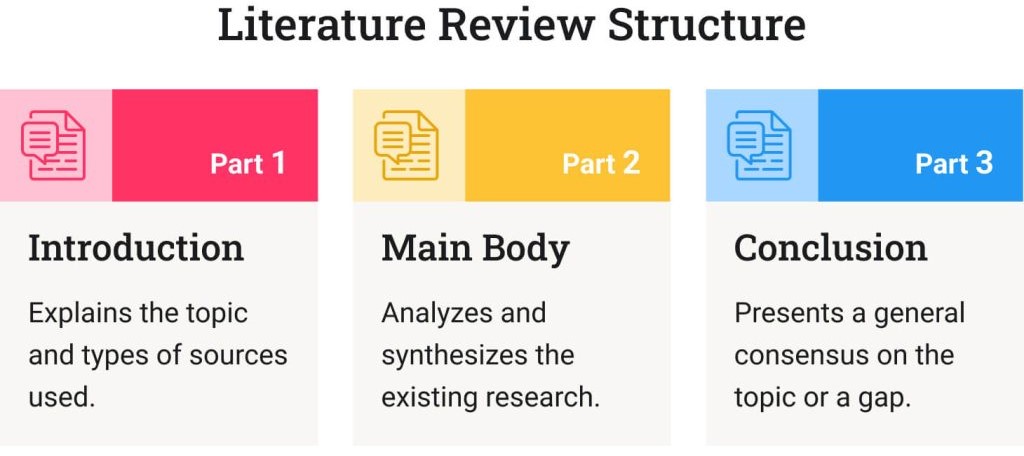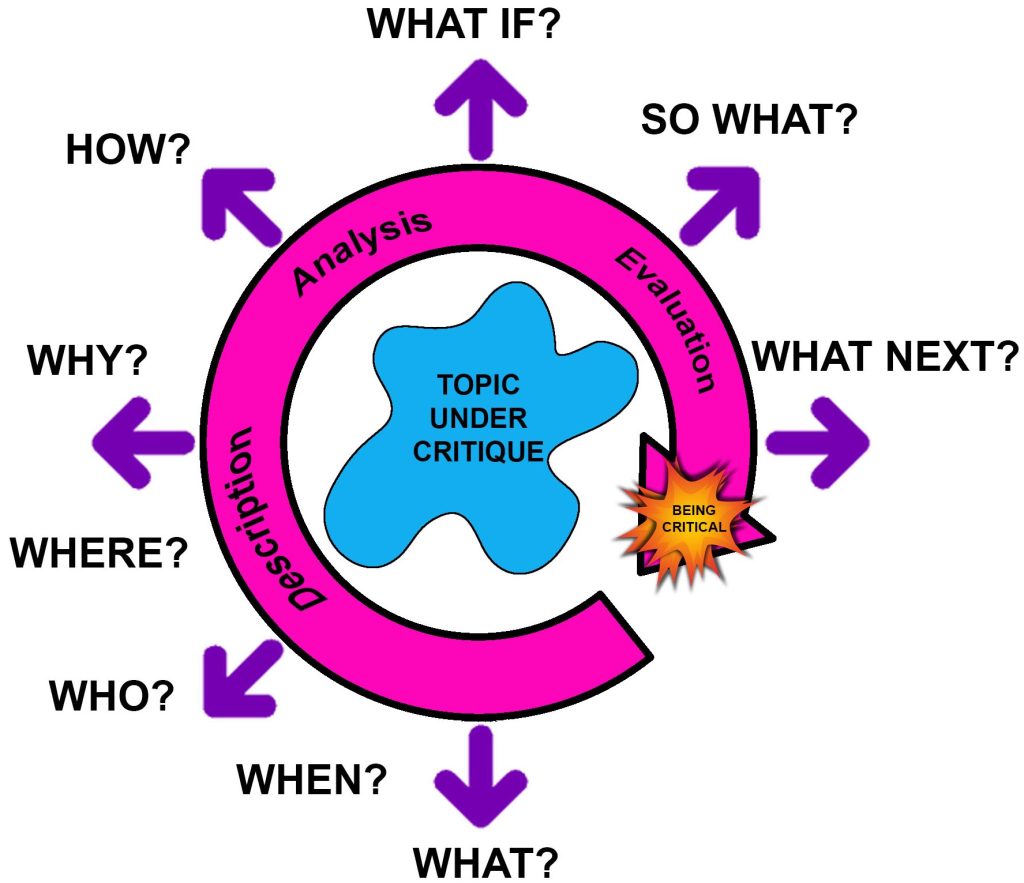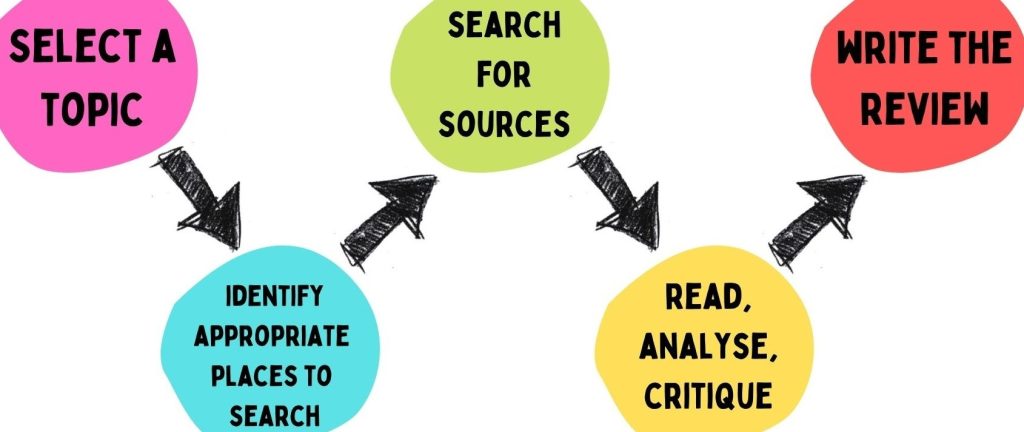
Table of Contents
The nursing thesis literature review is a crucial element of any successful research project. It provides a foundation for your study, showcasing your understanding of the existing knowledge base and justifying your research question.
This comprehensive guide will explore key strategies for writing an impactful and effective nursing thesis literature review. It will also discuss the common pitfalls to avoid in writing literature reviews. You will also find a sample nursing thesis literature review for reference.
What is the Significance of a Nursing Thesis Literature Review?
The nursing thesis literature review is a crucial component of any nursing research project. It serves as the foundation for the entire study, providing a comprehensive overview of existing knowledge on the chosen topic. This review is not just a summary of existing research; it is a critical analysis and synthesis of the literature, identifying gaps in knowledge and informing the research question and methodology.
A well-conducted nursing thesis literature review allows the researcher to:
- Establish the significance of the research topic: By demonstrating the current state of knowledge and identifying gaps in research, the review highlights the need for the proposed study.
- Develop a theoretical framework: The literature review helps to identify relevant theories and concepts that can be used to guide the research.
- Refine the research question and hypotheses: The analysis of existing research helps to refine the research question and develop testable hypotheses.
- Identify appropriate research methods: The literature review can inform the choice of research methods, including data collection techniques, sampling strategies, and data analysis procedures.
In short, the nursing thesis literature review is an essential element of any nursing research project. It provides context, justification, and direction for the study. It also goes a long way in ensuring your study’s relevance and contribution to the field of nursing.
Steps for Writing a Stellar Nursing Thesis Literature Review
1. Defining Your Scope:
Before embarking on the literature search, it’s imperative to define the scope of your nursing thesis literature review. This involves clearly identifying the specific research area, including:
- Research question: What is the central question your study aims to answer?
- Population: Who is the target population of your research?
- Intervention (if applicable): What specific intervention or treatment are you investigating?
- Outcomes: What are the primary outcomes you are interested in measuring?
- Timeframe: Is your research focused on a specific time period?
These elements will help you focus your literature search and ensure that the selected studies are relevant to your research question.
2. Choosing the Right Databases:
Once you have a clear understanding of your scope, you need to select the appropriate databases for your nursing thesis literature review. There are numerous databases dedicated to nursing and healthcare research, including:
- CINAHL (Cumulative Index to Nursing and Allied Health Literature): A comprehensive database covering a wide range of nursing and allied health literature.
- MEDLINE (Medical Literature Analysis and Retrieval System Online): A vast biomedical database containing medical, nursing, and related health sciences literature.
- PubMed: A free access database provided by the National Institutes of Health (NIH) that indexes biomedical literature.

- Cochrane Library: A collection of systematic reviews and other evidence-based resources for healthcare professionals.
- PsycINFO: A database specializing in psychology and behavioral sciences, relevant for nursing research involving mental health aspects.
The choice of databases will depend on your specific research area and the types of sources you require.
3. Developing Search Strategies:
Developing effective search strategies is crucial for efficiently identifying relevant literature for your nursing thesis literature review. This involves using a combination of keywords, subject headings, and Boolean operators:
- Keywords: Choose keywords directly related to your research question and the key concepts you are investigating.
- Subject headings: Utilize standardized subject headings (e.g., MeSH terms in MEDLINE) to ensure consistency and accuracy in your search results.
- Boolean operators: Use operators like “AND,” “OR,” and “NOT” to refine your search and combine different search terms.
- Truncation: Employ wildcards (e.g., “nurs*”) to retrieve variations of a keyword and capture broader search results.
- Filters: Utilize available filters (e.g., publication date, language, study type) to narrow your search and focus on the most relevant literature.
4. Identifying Relevant Studies:
After conducting your search, you need to carefully assess the retrieved articles to identify relevant studies for your nursing thesis literature review. This involves evaluating the following criteria:
- Study design: Determine the study’s methodology and assess its suitability for your research question.
- Population: Ensure that the study’s population aligns with your target population.
- Intervention (if applicable): If relevant, assess if the intervention studied is similar to the one you are investigating.
- Outcomes: Verify that the study measured outcomes relevant to your research question.
- Quality: Evaluate the study’s quality using established criteria (e.g., STROBE guidelines for observational studies, CONSORT guidelines for randomized controlled trials).
5. Organizing Your Literature:
Once you have identified relevant studies, you need to organize them in a way that facilitates the writing process for your nursing thesis literature review. This can involve:
- Creating a table or spreadsheet: Summarize key information from each study, including study design, population, interventions, outcomes, and key findings.
- Using a literature management software: Tools like EndNote, Zotero, or Mendeley can help you organize, store, and cite your literature effectively.
- Developing a conceptual framework: This can provide a visual representation of the relationships between different concepts and theories within your literature review.
6. Writing the Nursing Thesis Literature Review:
The writing process for your nursing thesis literature review should be systematic and logical, following a clear structure:

- Introduction: Begin by introducing the research problem and providing background information on the topic. Briefly mention the key concepts and research questions that will be addressed in the review.
- Body: Organize the review into thematic sections based on the key concepts or research questions. Present each section with a clear topic sentence and provide a summary of the relevant literature.
- Synthesis: Move beyond simply summarizing studies and synthesize the existing literature to identify key themes, gaps in knowledge, and inconsistencies in findings.
- Critical appraisal: Evaluate the quality and credibility of the included studies, highlighting limitations and potential biases.
- Discussion: Discuss the implications of the reviewed literature for your own research question. This section should highlight the rationale for your research and how it will contribute to the existing body of knowledge.
- Conclusion: Summarize the main findings of the literature review and emphasize the significance of your research within the broader context.
7. Writing Style and Citation:
Maintaining a clear, concise, and objective writing style is crucial for a compelling nursing thesis literature review. Use formal language, avoid jargon, and ensure the language is appropriate for the intended audience. Follow established citation guidelines (e.g., APA style) for accurate referencing and to avoid plagiarism.
8. Common Mistakes to Avoid:
Several common mistakes can weaken the impact of your nursing thesis literature review. These include:
- Lack of focus: A broad review lacking a clear scope and research question will fail to provide meaningful insights.
- Over-reliance on secondary sources: Avoid relying solely on review articles and instead access primary research publications whenever possible.
- Ignoring conflicting findings: Acknowledge and discuss contradictory findings within the literature to demonstrate a thorough understanding of the topic.
- Poor organization and structure: A poorly organized review will be difficult for readers to follow and comprehend.
- Over-citation: Avoid excessive citations without providing sufficient explanation or analysis of the cited works.
9. Revising and Editing:
Once you have completed the initial draft, it’s essential to revise and edit your nursing thesis literature review thoroughly. This involves:
- Checking for clarity, accuracy, and coherence: Ensure that the text is easy to understand and that the arguments are logically presented.
- Addressing feedback from supervisors or peers: Seek constructive criticism to identify areas for improvement.
- Proofreading for grammar, punctuation, and spelling errors: Ensure that the final document is error-free and professionally presented.
10. Incorporating the Literature Review into the Thesis:
The nursing thesis literature review should seamlessly integrate with the rest of your thesis. It should provide a solid foundation for your research question, methodology, and expected results. Use the findings from the review to inform your research design, data analysis, and interpretation of results.
The Importance of Stellar Nursing Thesis Literature Reviews
The nursing thesis literature review plays a crucial role in the success of your research project. It serves several important functions:
- Provides context and rationale: Explains the existing knowledge base and identifies gaps in the literature, justifying your research question.
- Establishes credibility: Demonstrates your understanding of the relevant research and your ability to critically analyze and synthesize information.
- Guides research methodology: Informs your research design, data collection methods, and analysis techniques.
- Supports the interpretation of findings: Allows you to place your findings in the context of existing research and draw meaningful conclusions.
- Contributes to the body of knowledge: By identifying gaps and offering new insights, your research can contribute to the advancement of nursing knowledge and practice.
Avoiding Pitfalls in Your Nursing Thesis Literature Review
A well-structured and comprehensive nursing thesis literature review is crucial for a successful thesis. It provides the foundation for your research, demonstrating your understanding of the existing knowledge and identifying gaps that your study will address. To ensure your nursing thesis literature review is impactful, avoid these common mistakes:
1. Lack of Focus and Scope: A clear and concise research question is paramount. Before delving into the nursing thesis literature review, ensure you have a well-defined scope, avoiding overly broad topics. This will help you stay focused and ensure your nursing thesis literature review stays relevant to your research question.
2. Superficial Coverage: Simply listing sources is not enough. Critically evaluate each study, analyzing its strengths and limitations. Discuss how each study contributes to the overall understanding of your topic and highlight areas where further research is needed.
3. Ignoring Recent Research: Your nursing thesis literature review should include the most up-to-date research. Ensure you include recent publications to ensure your findings are relevant and informed by the latest advancements in the field.
4. Lack of Synthesis and Critical Analysis: Beyond summarizing individual studies, your nursing thesis literature review should synthesize the existing body of knowledge. Identify key themes, discrepancies, and gaps in the literature, providing a clear picture of the current state of research.

5. Unclear Organization and Structure: The structure of your nursing thesis literature review is crucial for reader comprehension. Use clear headings and subheadings to guide the reader through the different themes and arguments. Provide smooth transitions between sections, ensuring a logical flow of information.
6. Neglecting Ethical Considerations: In nursing research, ethical implications are crucial. Your nursing thesis literature review should acknowledge any ethical concerns raised by the included studies and discuss any potential ethical implications of your own research.
By carefully avoiding these common mistakes, you can produce a strong and impactful nursing thesis literature review that sets the stage for a successful thesis project.
Sample Nursing Thesis Literature Review
The Impact of Music Therapy on Pain Management in Postoperative Patients: A Literature Review
This nursing thesis literature review aims to synthesize current research on the effectiveness of music therapy in managing pain in postoperative patients. The study will explore the various theoretical frameworks underpinning music therapy’s potential benefits, examine the diverse approaches utilized in music therapy interventions, and analyze the empirical evidence supporting its efficacy in postoperative pain management.
Current Knowledge:
While pharmacological interventions remain the mainstay of postoperative pain management, the potential adverse effects and limitations of medication have spurred interest in complementary and alternative therapies. Music therapy, with its non-invasive and accessible nature, has emerged as a promising alternative.
A significant body of research supports the use of music therapy for pain management in various contexts. Studies have demonstrated its efficacy in reducing pain perception, improving mood and anxiety levels, and decreasing the need for analgesics. The nursing thesis literature review will explore this body of research, analyzing the methodological rigor and consistency of findings across various studies.
Theoretical Frameworks:
Several theoretical frameworks underpin the potential benefits of music therapy for pain management. These include the gate control theory of pain, which suggests that music can distract from pain signals, the cognitive-behavioral model, which posits that music can influence emotional and cognitive responses to pain, and the psychoneuroimmunological model, which highlights music’s potential to modulate physiological processes associated with pain perception.
Music Therapy Interventions:
The nursing thesis literature review will explore the various music therapy interventions used in postoperative pain management. These include:
- Active music making: Encouraging patients to engage in music creation through singing, playing instruments, or improvising.
- Passive music listening: Providing patients with pre-recorded music tailored to their preferences and needs.
- Guided imagery with music: Combining music with guided imagery techniques to promote relaxation and distraction from pain.
Empirical Evidence:
The review will critically analyze empirical studies examining the effectiveness of music therapy interventions for postoperative pain management. This analysis will include:
- Study designs: Examining the methodological rigor of various studies, including randomized controlled trials, quasi-experimental designs, and observational studies.
- Outcomes measured: Assessing the diverse outcomes measured across studies, such as pain intensity, pain duration, analgesic consumption, mood, and anxiety levels.
- Population characteristics: Examining the characteristics of study participants, including age, gender, surgical procedures, and pain levels.
Gaps in Knowledge:
Despite the growing body of research, there are significant gaps in our understanding of the effectiveness of music therapy for postoperative pain management. These gaps include:
- Lack of standardization: There is a lack of standardized music therapy protocols and outcome measures, making it difficult to compare findings across studies.
- Limited long-term studies: Most studies have examined the short-term effects of music therapy, with limited research exploring its long-term impact on pain management.
- Individualized music therapy: There is a need for further research examining the effectiveness of individualized music therapy approaches, tailored to patient preferences and needs.
Conclusion:
This nursing thesis literature review aims to contribute to the growing body of knowledge on music therapy for postoperative pain management. By providing a critical analysis of current research, identifying gaps in knowledge, and proposing future research directions, this review will ultimately inform the development of evidence-based music therapy interventions for postoperative patients.
The Bottom Line

Crafting a strong nursing thesis literature review requires careful planning, meticulous research, and effective writing. By employing the strategies outlined in this guide, you can develop a comprehensive and impactful literature review that lays a solid foundation for your research project and contributes to the advancement of nursing knowledge and practice. Remember, the nursing thesis literature review is more than a mere summary of existing research; it is an opportunity to critically analyze the literature, identify knowledge gaps, and pave the way for meaningful new discoveries in the field of nursing.
Get Professional Nursing Thesis Writing Assistance
Are you having difficulties in writing a compelling nursing thesis literature review? Then, engage Nursing Papers for professional nursing thesis writing help. Apart from the literature review, we can also help you with writing all the other sections of the thesis including the abstract, introduction, methodology, results, discussion and conclusion. We guarantee original and authentic nursing thesis, research papers, essays, case studies and dissertations for academic and career success.







